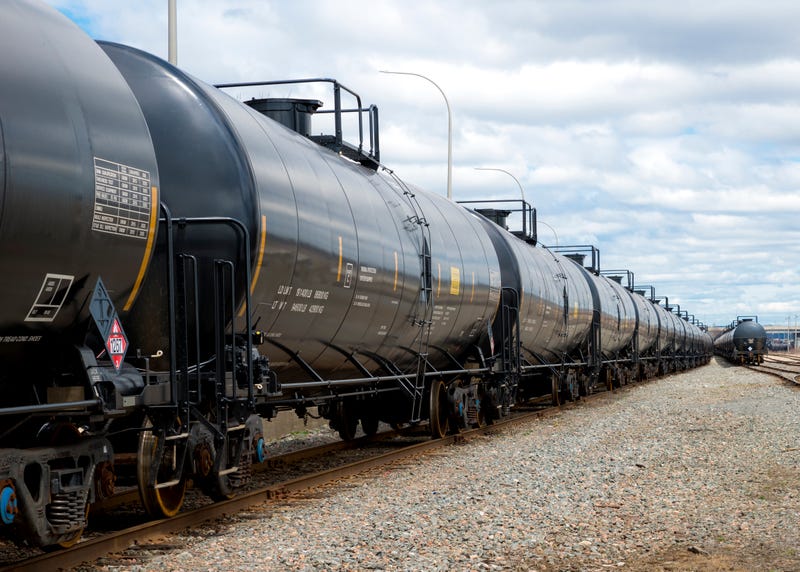
In a post on Truth Social, Trump stated on January 20th, after the inauguration, he would be imposing a 25% tariff on all products coming into the U.S. from Canada and Mexico to combat what he calls open borders. Those tariffs could affect a number of goods but there's one in particular the U.S. depends on getting from Canada: crude oil.
For starters, it easily could mean higher gas prices are coming, primarily for the Great Lakes states, Midwest and Rockies. That's according to Patrick De Haan, an oil and gasoline analyst with gasbuddy.com.
Is it simply a negotiation tactic? What does that mean for consumers if those tariffs are actually enforced? There's no guarantee these tariffs would happen, of course. But De Haan says there's no doubt it would come with risk to consumers if they were implemented.
De Haan, speaking to WCCO's Chad Hartman, says a 25% tariff on Canadian oil would have huge impacts to gas prices in the Great Lakes, Midwest and Rockies, which are major markets where refiners process Canadian oil.
"You can't simply process different oil overnight," De Haan. "It would take investments and years. More U.S. supply wouldn't help. We don't produce a lot of this heavy crude oil. The U.S. produces light, sweet crude oil and that's why a lot of our stuff gets exported."
Canada sends the U.S. nearly 4.5 million barrels of oil per day, and De Haan notes that the oil sent from Canadian fields is of a quality of oil (heavy sour) that the U.S. can not easily replace.
He says the total impact to gas prices in these areas could be 25-75 cents per gallon, dependent on the season and refining factors. Summer would mean prices even higher than that thanks go increased demand. De Haan adds those numbers are only if Canada doesn't respond by cutting oil exports to the U.S. which would only add to the issues.
"Which is definitely possible if both countries insist on a back-and-forth of shooting themselves in the foot," De Haan says. "This is not that much of a friendly move. This could backfire."
De Haan says there is no question tariffs on Canadian oil would trickle down to consumers.
"Because refineries in the Great Lakes, Rockies & Midwest rely on Canadian heavy crude oil for feedstock to refine," he told Hartman. "If these are tariffed at 25%, that's going to basically mandate refiners pay a lot more for feed. Guess who pays? End users, consumers."
Refineries in the Midwest are built specifically to use Canadian heavy crude. If that oil isn't coming in or coming in at a higher price, De Haan says there's no question prices will rise.
"Ultimately, if the tariffs happen, they're going to hit you," says De Haan.
Another reason gas prices in America tend to be lower than the rest of the world is due to the processing of Canadian oil, which the U.S. is the only import market for, and is uniquely set up to refine it. That oil comes in cheap, and at 4 million barrels per day, frequently.
"U.S. refineries buy this oil at a big discount," De Haan notes. "Well, that big discount could be going in away in the form of higher tariffs. It's very difficult. If Trump were to say, 'well, you know, let's change these refineries to process more U.S. oil.' It would take years and billions of dollars for every single refinery in this region to suddenly make this change. It's expensive."
